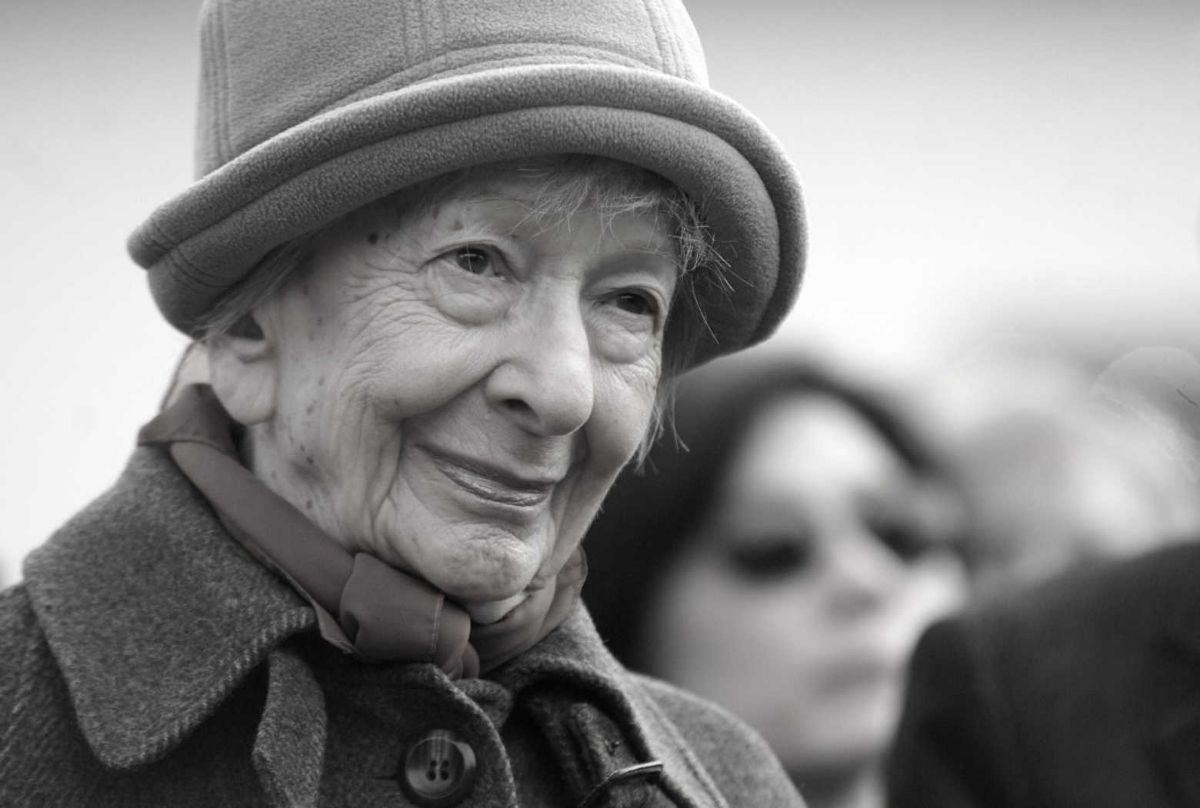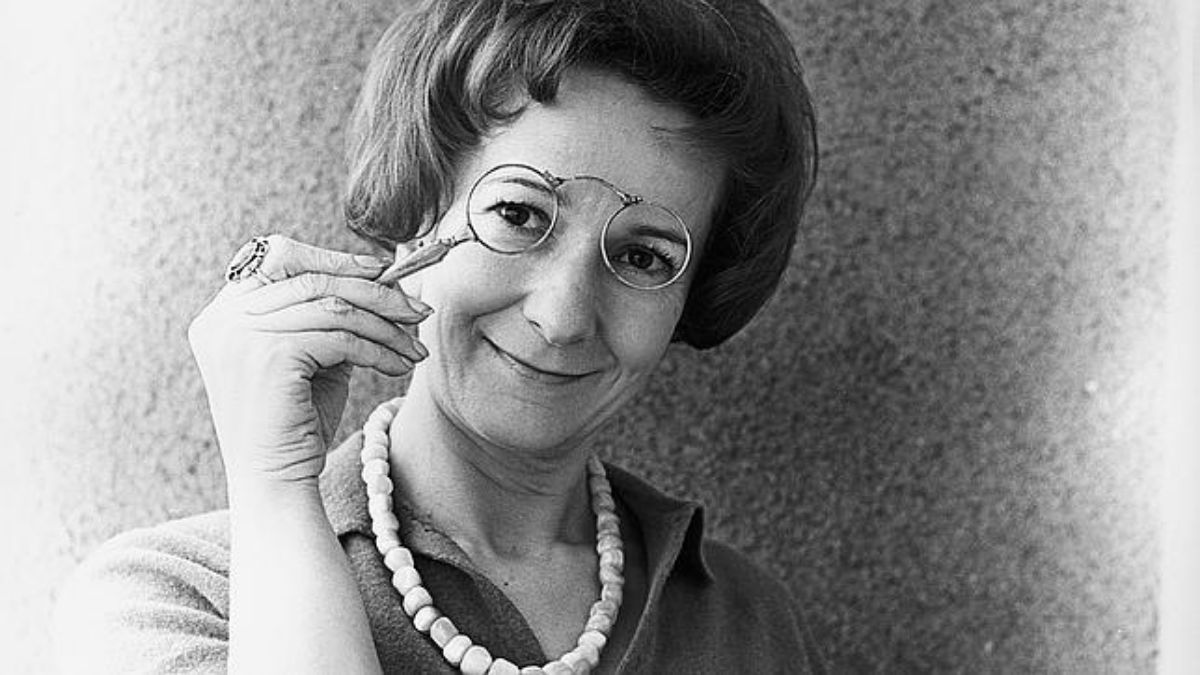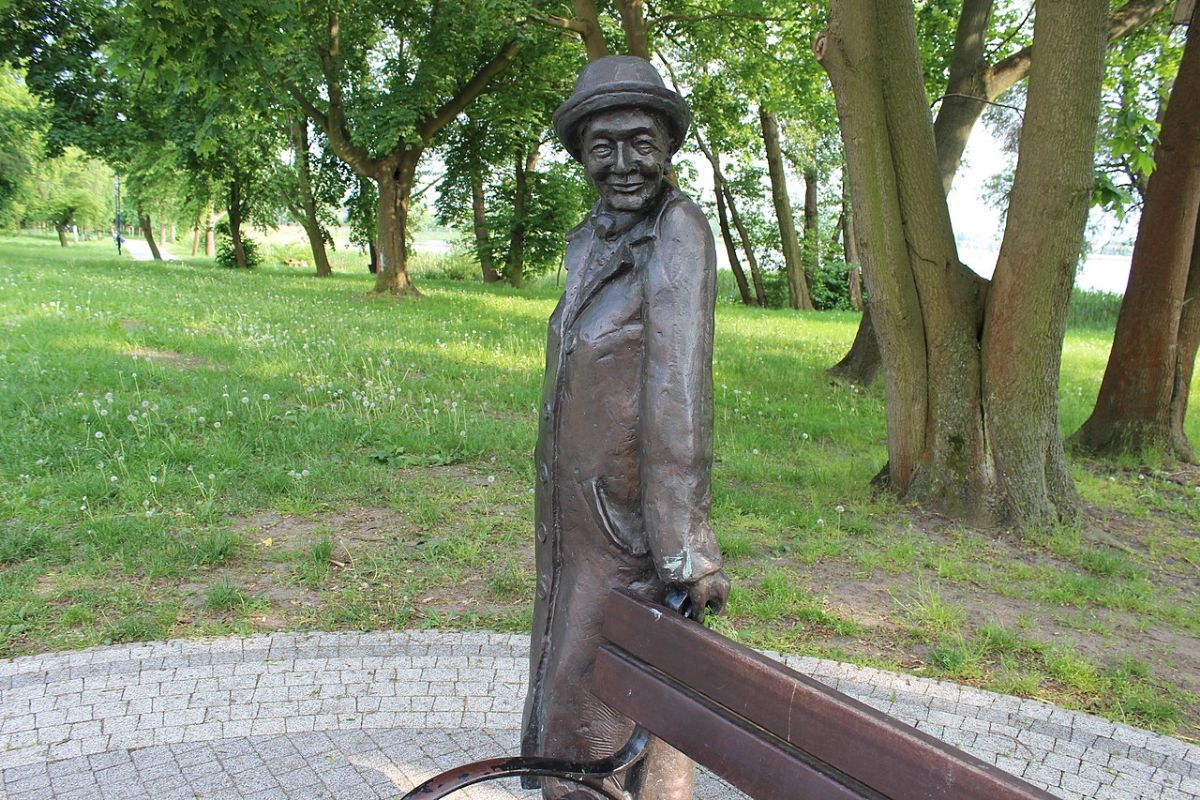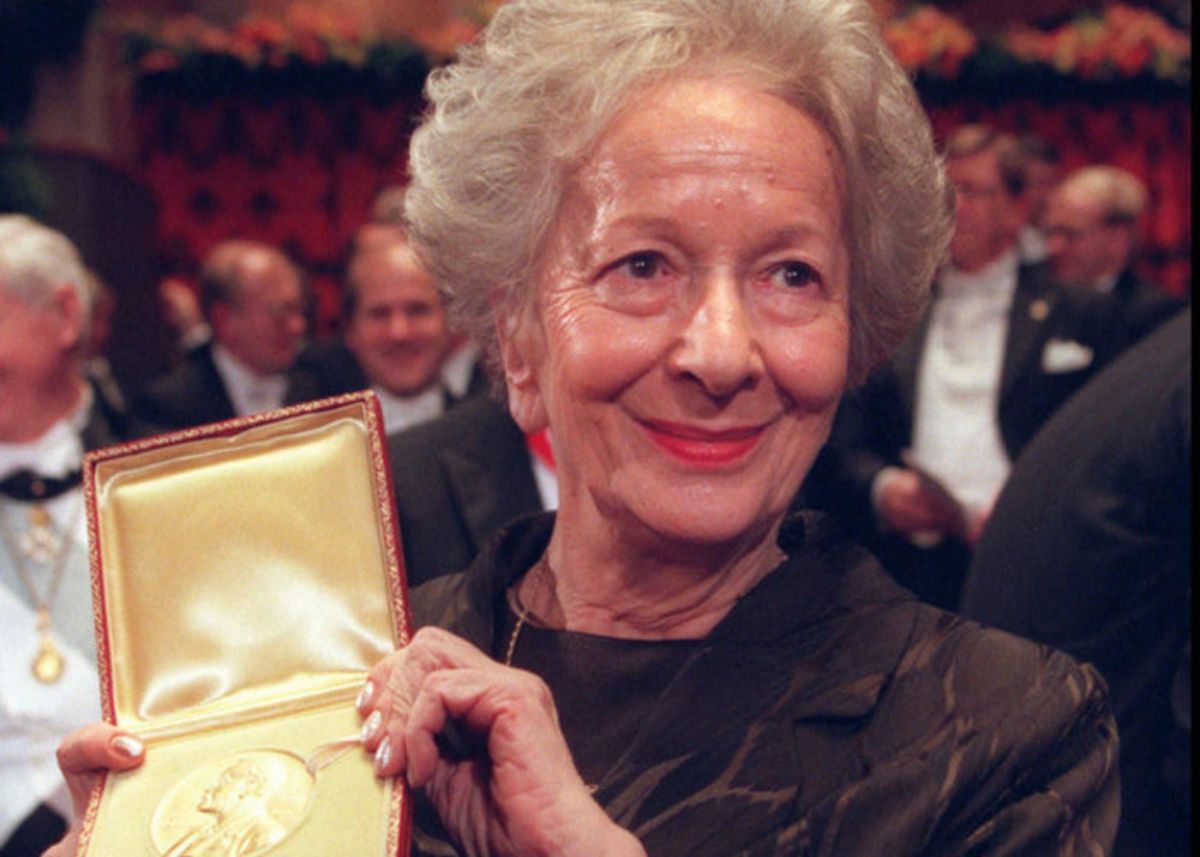Wislawa Szymborska Fountain: the2bankerne
–
Wislawa Szymborska She is one of the least known poets in the world, despite winning the Nobel Prize for Literature in 1996. Unfortunately, we can no longer trust his presence when he died in 2012, but his work continues to last over time and you have certainly encountered it at some point.
Men Who was Wislawa Szymborska? What did he write? Why are you so famous both in your country and abroad? Of all that and much more, this is what you want to know today.
Who is Wislawa Szymborska

Kilde: zendalibros
–
Wislawa Szymborska is not really her name. This poet’s full name was Maria Wislawa Anna Szymborska. He was born in Prowent in 1923 (right now it’s what we know as Kórnik, in Poland).
His father was a butler for Count Wladyslaw Zamoyski, owner of the town of Kórnik, and when he died a year later, he thought the family had to move to Torun, where Wislawa Szymborska grew up.
He was much too early, so much so that when he was five years old, when he was studying in school, he started writing poetry. It must also be said that everyone in his family were non-committal readers and they used to read and argue about books. In addition, he had a “prize”. And it is that all of Wislawa Szymborska’s poems passed through his father’s hands, and if he liked them, he gave him a coin as a prize, which he could buy whatever he wanted.
In 1931 they had to move again, and although he enrolled in the convent school in Krakow, he did not finish his studies there. At this point, one of the traumas that marked her was undoubtedly her father’s death. The family did not move again, but remained in Krakow, where a few years later, during World War II, in 1940, they suffered the German occupation of Poland.
Because of this Poles could not attend public schools. But that did not stop Wislawa Szymborska, who decided to continue her studies and did so in an underground school in Wawel Castle. Thus, in 1941, he completed his high school studies.
Two years later, she began working on the railways, thus avoiding being deported to Germany for forced labor. Also during this time he spent the rest of his time making illustrations for an English textbook and writing both short stories and poems.
At the end of World War II, Wislawa Szymborska helped enroll in the Jagiellonian University in Krakow, where she chose Polish literature, but eventually changed her career to sociology. Despite this, he was unable to finish his studies, but dropped out in 1948.
During the short student period, however, he published some poems in newspapers and magazines.
Wislawa Szymborska and litteraturen

Source: abc
–
The first poem published by Wislawa Szymborska was in 1945, in a literary supplement to the daily Dziennik Polski. Its title, I seek the word (Szukam slowa). And that meant not only his debut, but also that they opened the doors to his poems in newspapers and local media.
In 1948, when she left college because she could not pay it, she began working as the secretary of an education magazine, specifically for the newspaper that had given her her first chance, Dziennik Polski. And at the same time as she was secretary, she also served as an illustrator and poet as she continued to publish poetry.
In fact, as early as 1949 he had his first collection of poems.
Shortly afterwards, in ’52, he published another collection of poems, Dlatego zyjemy (That’s Why We Live), the vast majority of which are full of his political ideology. And it is that at that time he became a member of the Polish Workers’ Party with a great socialist sense that he turned not only in that collection of poems, but also in the next, in 1954, Pytania zadawane sobie (Questions Asked) self).
Now, despite being a socialist, three years later he published a new collection of poems, Walanie do Yet (Call to the Yeti), in which he showed a clear disappointment and break with the communist ideology, and how she had changed in her thinking, dissatisfied with how that kind of policy worked.
In addition, he showed concern for humanity, specifically Stalinism, even dedicated a poem to Stalin, in which he compared him to the abominable snowman (Yeti). Until that time, he dismissed Communism and Socialism because he rejected the two works he published and would never hear from them again.
What books he wrote

You need to take that into account Wislawa Szymborska started writing from the age of five. It is said that he left more than 350 written poems. In books he wrote more than 15 poetry and prose. But even though we were so lush, we could not say it was world famous, in fact, it was not like that. They knew her a little in his country, but not outside it. As it was best known, it was in her other works: literary criticism and translations.
So when in 1996 they awarded him the Nobel Prize for Literature, Wislawa Szymborska was a surprise, both for her and for all those who did not know her until that moment. Of course, it was not the only prize he was awarded. Earlier, he had already awarded others, such as the prize of the Polish Ministry of Culture, in 1963; The Goethe Prize in 1991; or the Herder Prize and recognition as an honorary doctor in letters from Adam Mickiewicz University of Poznan, in 1995.
1996 was a good year for her, not only because of the Nobel Prize, but also because she was awarded the PEN Club Prize in Poland.
Several years later, in 2011, he received one of his most recent awards, the Orla Bialego Order (Order of the White Eagle), the highest honor received in Poland.
In Spain you can find some of his translated work, some of the books are:
- Landscape with grains of sand.
- To punkter.
- The large number.
- Happy love and other poems.
- Literary post.
- Selected poems.
Finally we leave you with one of Wislawa Szymborska’s poems.
MESSAGES WITH WORDS
EVERYONE who knows where it is
of compassion (imagination of the soul),
“Let him warn!” , Let him warn!
Let me sing it out loud
and dance as I lost my mind
jubilant under the fragile arrow
Forever on the verge of breaking down in tears.
I’m learning to shut up
in all languages
with a method to consider
of the starry sky,
the jaws of the sinantropus,
plankton,
snefnug.
I Return love.
Attention! Negotiate!
In the grass of the past,
when, bathed in the sun up to the neck,
you lie while the wind dances
(master of your hard dance).
Offers for “Dream”.
Person wanted
to cry
for the elderly who are in nursing homes
die. Serve yourself
come forward without references
no written requests.
The papers will be destroyed
without receipt for receipt.
TO MY HUSBAND’S PROMISES
– That he deceived you with the colors
of the populous world, with its excitement,
with one disconnected from the window with a dog
behind the wall
that you would never be alone
in gloom, quiet and breathless.
I can not answer.
Natten, Dagens enke.
Trad. Elzbieta Bortkiewicz
–


